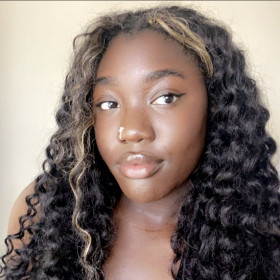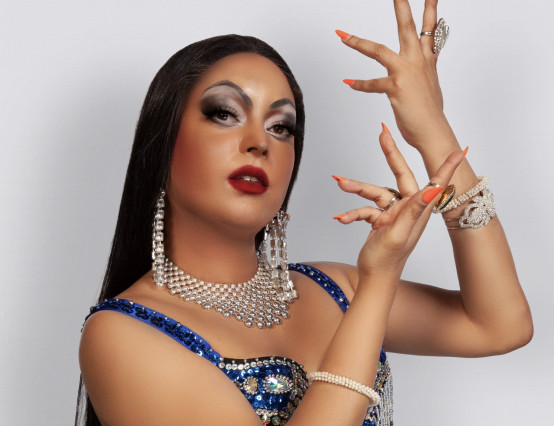'Slay'. 'Go off, sis'. 'Finna'. 'Lit'. Sound familiar? These phrases have found their way into the 'slang' of Gen Z. From TikTok to Twitter, Gen Z slang has become an intergenerational talking point. It is debated on its legitimacy, cringe-worthiness and general usage. Black and LGBTQIA+ communities dominate pop culture. Due to the growth of the internet, there is an increased influence on young people. This has led to the widespread adoption of phrases from these communities. How harmful is this? My answer, extremely.
Let's look at the origin of these phrases. It can be traced back to African American Vernacular English, also known as AAVE. AAVE can be unpacked in a multitude of ways. Mary B. Ziegler puts it best, it is a system in which African Americans communicate and a "medium for African American thought". The specific origin of AAVE is still debated. Some linguists suggest that it formed when enslaved Africans had to learn how to communicate with indentured servants. Others suggest that it began by mixing various West African languages with English to create a new way to communicate. They then argue that it eventually intersected with Standard English. Either way, there is still a heavy amount of stigma attached to AAVE in the modern-day. It is connected to the idea of it being 'slang', a form of 'lazy' speaking, or simply being 'broken' English. Due to negative associations regarding AAVE, many speakers feel the need to code-switch in educational or white-dominated environments.
If we take a look at the Trayvon Martin case, we can see examples of this. Trayvon Martin, a 17-year-old African American teenager, was fatally shot in 2012. When the case was brought to court, George Zimmerman, the man who shot Trayvon Martin, claimed that it was self-defence. Trayvon's friend, Rachel Jeantel, was on the phone with him before and during the affair and was a key individual for the prosecution due to her testimony. Yet, John R. Rickford, a Stanford Linguist Professor, argued that Rachel's use of AAVE meant that she was misunderstood and invalidated by the jury. Rachel was also put through public commentary that bashed her use of AAVE. Professor Rickford reasoned that this meant Rachel's testimony was not taken fully into consideration. This is just one example out of the potential thousands and millions of instances this happens and the consequences it may have.
One of these consequences is how the portrayal of some AAVE phrases being 'Gen Z' slang is also part of a broader conversation surrounding cultural appropriation. Cultural appropriation is the exploitative, stereotypical or disrespectful way members of a majority group adopt cultural elements of a minority group. Adopting AAVE phrases as 'Gen Z' slang is only one element of cultural appropriation for African Americans. As we start to excuse, ignore or enable the cultural appropriation of AAVE, we may begin to see this being displayed on a wider scale. It already is, through hair, clothing and music.
So, we've established how Black Americans who speak AAVE are discriminated against and the stigmas against them. But things are looking up, right? 'Yaas' and 'Periodt' are used by Gen Z regularly, and there is a form of recognition with these phrases. Yet this is just another example of the delegitimisation of AAVE as simply slang, something fun for the kids to play with. Instead of AAVE being recognised as a creative, complex, and a profoundly detailed way of communication, it is being portrayed as teenage lingo. AAVE has its own language conventions, rules, and standards, and quite frankly, it is hard to watch it be co-opted in the way it has been.
It is difficult to develop a definite answer on how a person should tackle this. My one ask is that we acknowledge that AAVE is more than just Gen Z slang. For those who treat it as a trivial way of speaking, I ask that you consider the impact this has on those who engage with AAVE regularly.
It's not slang, it's culture, and it's time people respected that.
If a lack of acknowledgement continued, we could potentially be faced with the whitewashing of a language. The creativity and ingenuity behind AAVE will not be credited to the Black American community but lost to being a pop-culture fad. We may also see the continued use of ridicule for AAVE speakers as it becomes increasingly trivialised. Not only will it be seen as a form of 'improper' English, but also as something childish and immature. These may seem like wild conclusions, but AAVE has already seen multiple waves of mockery and erasure. What is to stop it from going even further?
For actual change to happen, it can start with the simplest acknowledgement. Like recognising that the phrase you use in your group chat is not just a funny word, but one part of a vibrant culture. A culture that deserves your respect.









0 Comments